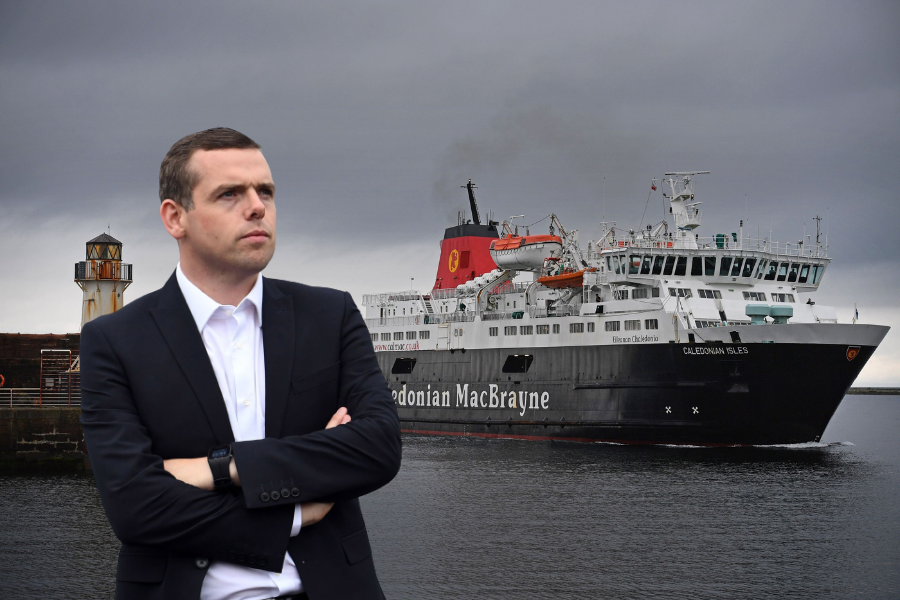
REPORTS of food shortages on the islands must be addressed urgently, the Scottish Tories have said.
Douglas Ross and eight Scottish Tory MSPs representing island communities have demanded transport minister Jenny Gilruth gather an urgent meeting to determine a battle plan for restoring reliability to disrupted ferry services.
It comes after reports shops in the Hebrides were restricting purchases of essential items such as milk and bread.
The letter, signed by seven MSPs representing the islands and Rachael Hamilton, the Tory shadow rural affairs secretary, said the ferry service had become so unreliable “it cannot even be trusted to supply basic food items to the people of the Hebrides”.
It added: “This is an unprecedented situation in modern times.”
Blaming the SNP for inaction on improving the “ageing ferry fleet” which saw breakdowns occur with “alarming frequency”, the letter demanded Gilruth assemble MSPs from all affected areas “to determine the actions and timelines required for the SNP Government to resume lifeline ferry services and prevent the situation getting this critical again in the future”.
Alasdair Allan, the SNP MSP for Na h-Eileanan an Iar, said he had met with the transport minister twice in the past week, adding that members representing islands "do little else other than raise issues around ferries at the moment".
He added: "That's what we'll continue to do.
"Everybody understands at the moment ferry services are not what they should be.
"We don't have the resilience in the ferry service that we need, we don't have the fleet that we need, these are devolved matters and local MSPs will push hard on the Scottish Government to get them sorted."
Asked if he would support the Tories' calls for an urgent meeting Allan said he "wasn't against it".
CalMac boss Robbie Drummonds was forced to apologise for severe disruption to the service last week.
He said: “Clearly customers are really upset about the latest disruption of last week and everyone at CalMac is deeply sorry for what they’ve been going through.”
Drummonds rejected claims nothing was being done to improve “short-term resilience”, saying CalMac’s spend had increased 70% over the past five years but acknowledged there was not a long-term investment programme to make the service fit for the future.
At time of writing seven routes out of 30 were experiencing disruption, while the rest were running on normal service.
The Scottish LibDems last week called for the Scottish Parliament to be recalled from its summer break to tackle the crisis.
A Transport Scotland said linking the disruption to food shortages was "wrong" saying issues in supply "may have be down to supermarket supply chain issues".
They added: "CalMac operated a number of additional sailings to help transport essential supplies during the disruption. In situations like this, they prioritise food supplies and confirmed that nothing was left on the mainland. Any shortages may have be down to supermarket supply chain issues.
“The transport minister also convened resilience meetings with local stakeholders to ensure they were kept up to date on the situation.
“We continue to work with CalMac and CMAL on potential resilience options for the fleet. This includes seeking potential second hand tonnage to improve operational resilience on the Clyde and Hebrides ferry routes.
"The previous charters of MV Arrow and recent purchase of the MV Utne (now MV Loch Frisa) are evidence of this ongoing commitment to improve and support the existing fleet in this way.”
CalMac has insisted it delivered all food supplies it was asked to take and denied it was responsible for shortages. A spokesperson blamed what they said was an ongoing problem with a supermarket supply chain and panic buying among members of the public.
Drummond said: "During this latest disruption, we shipped all the food deliveries we were asked to take.
"We prioritise food supplies and nothing was left on the mainland. Any issues with food supplies may have been caused by other reasons, such as supermarket supply chain issues.”





